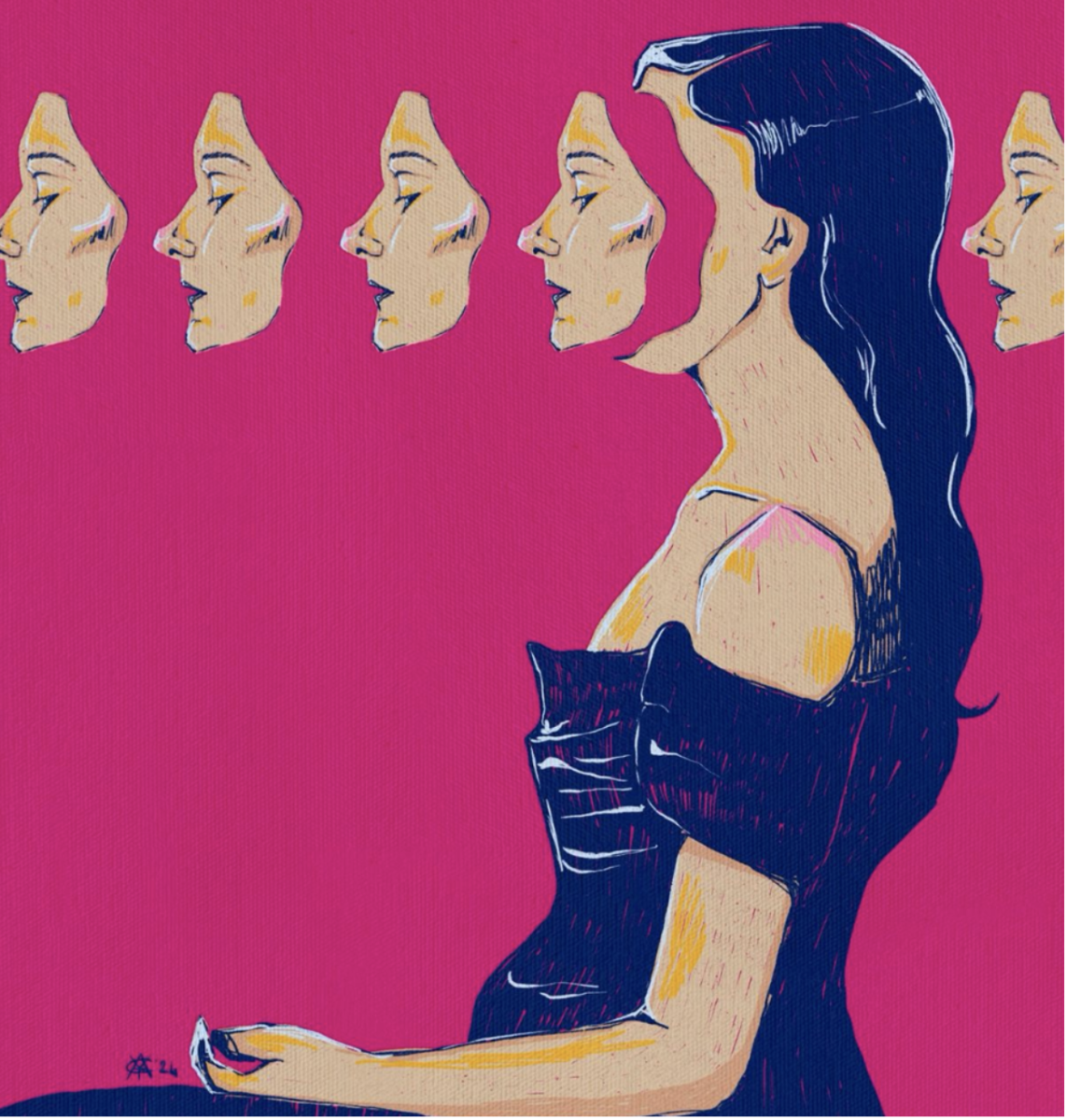Want to know the secret to being authentic? Fake it until people like it. That’s how our world treats honesty: not as truth, but as a staged performance. In our society, raw vulnerability is met with ridicule, disdain, and judgment. We say that we value honesty, openness, and authenticity, yet we punish the people brave enough to embody it. Across the workplace, social media, and personal relationships, vulnerability is a paradox—a performance that society admires on stage, but a risk too dangerous to attempt in reality.
In the workplace, the message is clear: be authentic, but not too authentic. Corporate culture loves buzzwords like “authentic leadership” and “emotional intelligence” claiming to encourage openness and self-awareness. The CEO of Microsoft emphasized that vulnerability builds tight-knit and stronger teams, while transparency builds trust. Yet employees who have emotional breakdowns or admit to burnout are punished rather than supported. For instance, in 2020, several companies like Workday were criticized for penalizing employees who took mental health leave or revealed their burnout. Ironically, the companies that champion wellness publicly often ignore it internally.
Fake authenticity has become a trend not just in the workplace, but also across social media. Platforms like TikTok and Instagram encourage users to be vulnerable online, while apps like BeReal promise “unfiltered honesty”. But if the post features a long emotional caption or an unfiltered expression of pain, it’s instantly labeled as “cringe”. Oversharing is accepted only when disguised by cozy lighting and aesthetic filters; influencers crying on camera can go viral, but only if the tears look cinematic. Evidently, society is willing to accept vulnerability—but only if it’s packaged as an “authentic” performance made for an otherwise cynically detached audience.
And what we see online is only a glimpse into the deeper cultural restrictions dictating who’s allowed to feel and how. Social norms behind gender roles create a double standard that writes a script for how men and women are allowed to feel openly. Men are told that expressing raw emotion is welcomed and accepted, yet in reality, crying is perceived as a weakness. Conversely, women are celebrated for their openness and empathy, but only to a certain extent: If their emotions turn to anger or frustration, they’re dismissed as “too emotional.” As a result, vulnerability becomes a rehearsal where only certain emotions are accepted. Men are only allowed to step briefly into unguarded roles, while women are rejected for raw, complex anger. In both cases, vulnerability is reduced to a scripted act, assigned to fit masculinity and femininity.
In theory, vulnerability is what keeps relationships intact, turning small talk into meaningful connection. But in our society, it’s what we’re afraid of. A friend who shares too much too soon risks being labeled as “too clingy” or someone who “overshares.” Even in long-standing friendships, sharing personal struggles is often met with withdrawal or lack of empathy. Ironically, most people long for intimacy and trust, but ignore the very act that builds it—opening up. Fearful of rejection and alienation, many people find that relationships built on trust and honesty feel risky. Even when we long for closeness, many of us remain guarded, and only a few make the first move.
We live in a culture that preaches vulnerability but isn’t ready to embrace it when it becomes raw, uncomfortable, or inconvenient. It’s a vicious cycle: We admire openness in theory, reject it in practice, and then wonder why people remain silent. Trust, connection and progress all depend on what we fear most. If we really want better workplaces, meaningful connection, and a more compassionate community, we must stop treating vulnerability as a flaw and instead honor it as an act of courage. We must not only be brave enough to open up ourselves, but also be willing to accept others’ openness with empathy, not disdain. The choice is ours: continue judging, or build a culture of compassion. The problem was never vulnerability—the problem was us.


